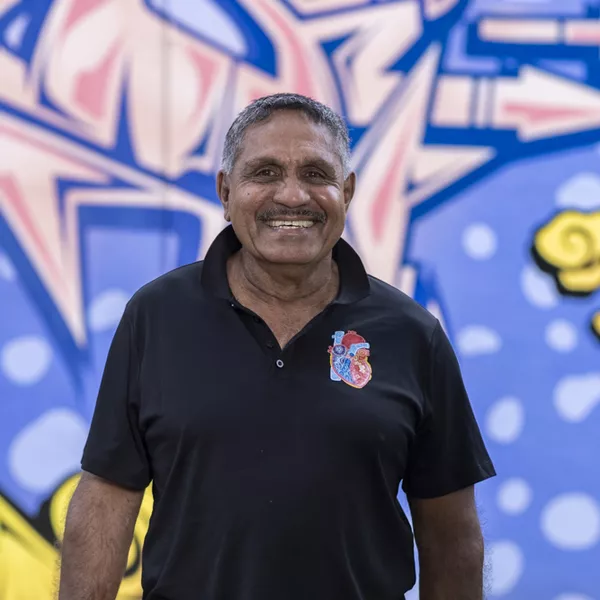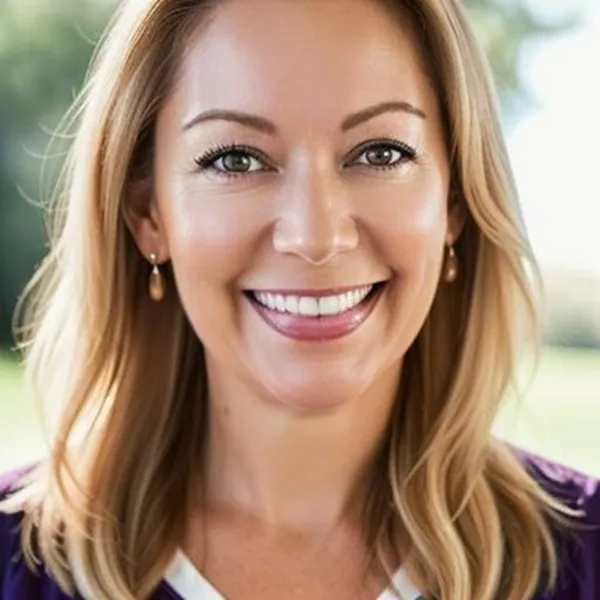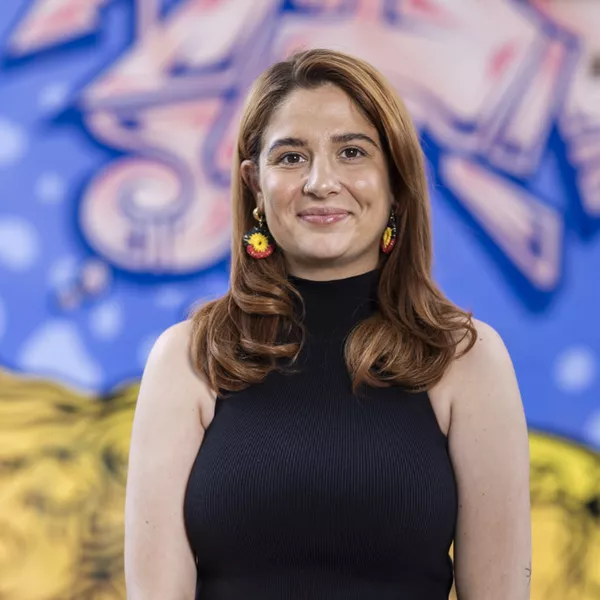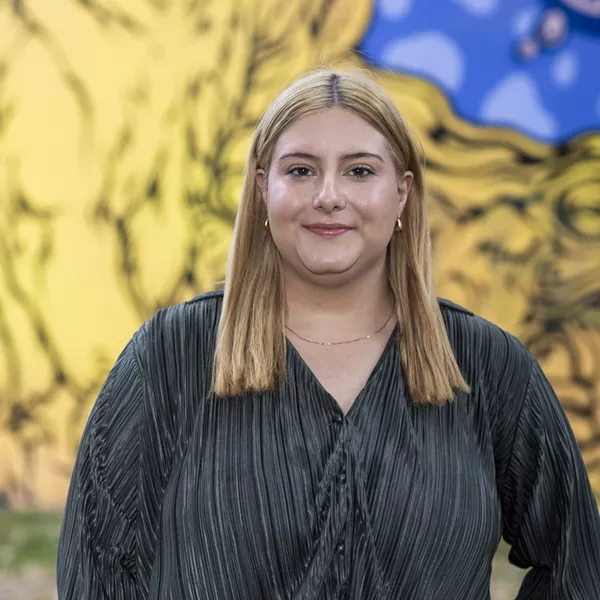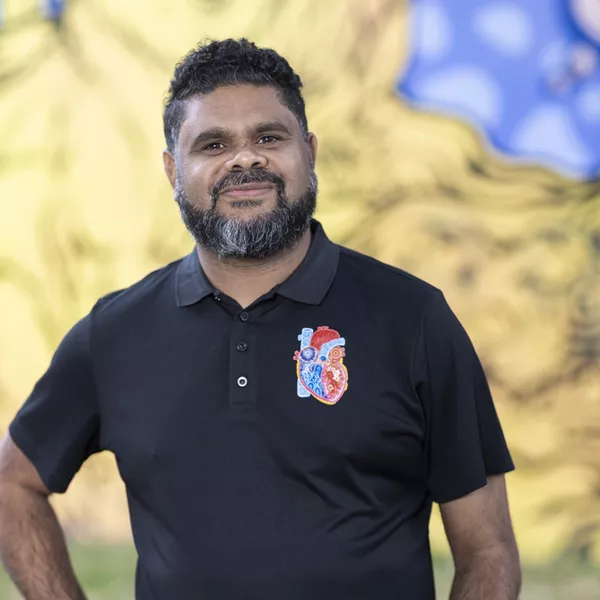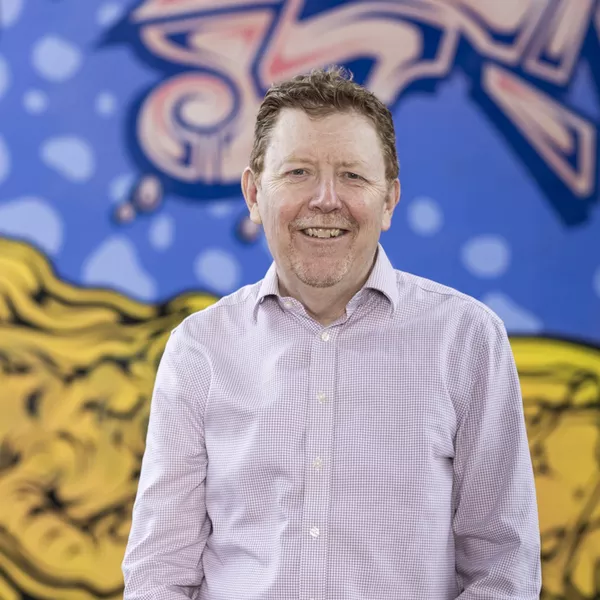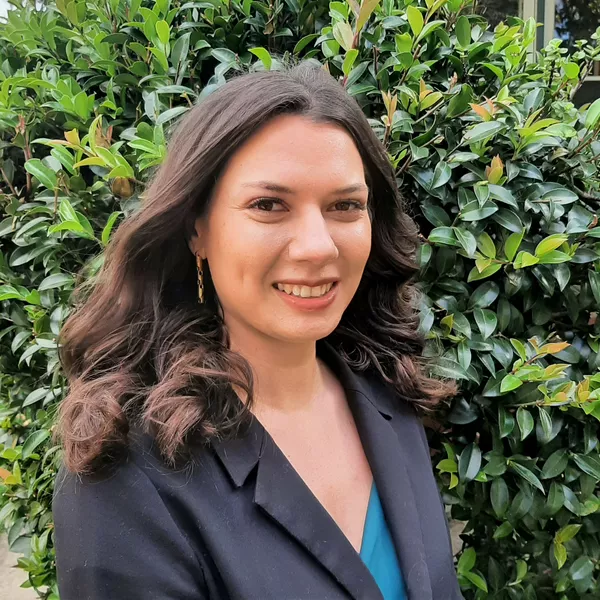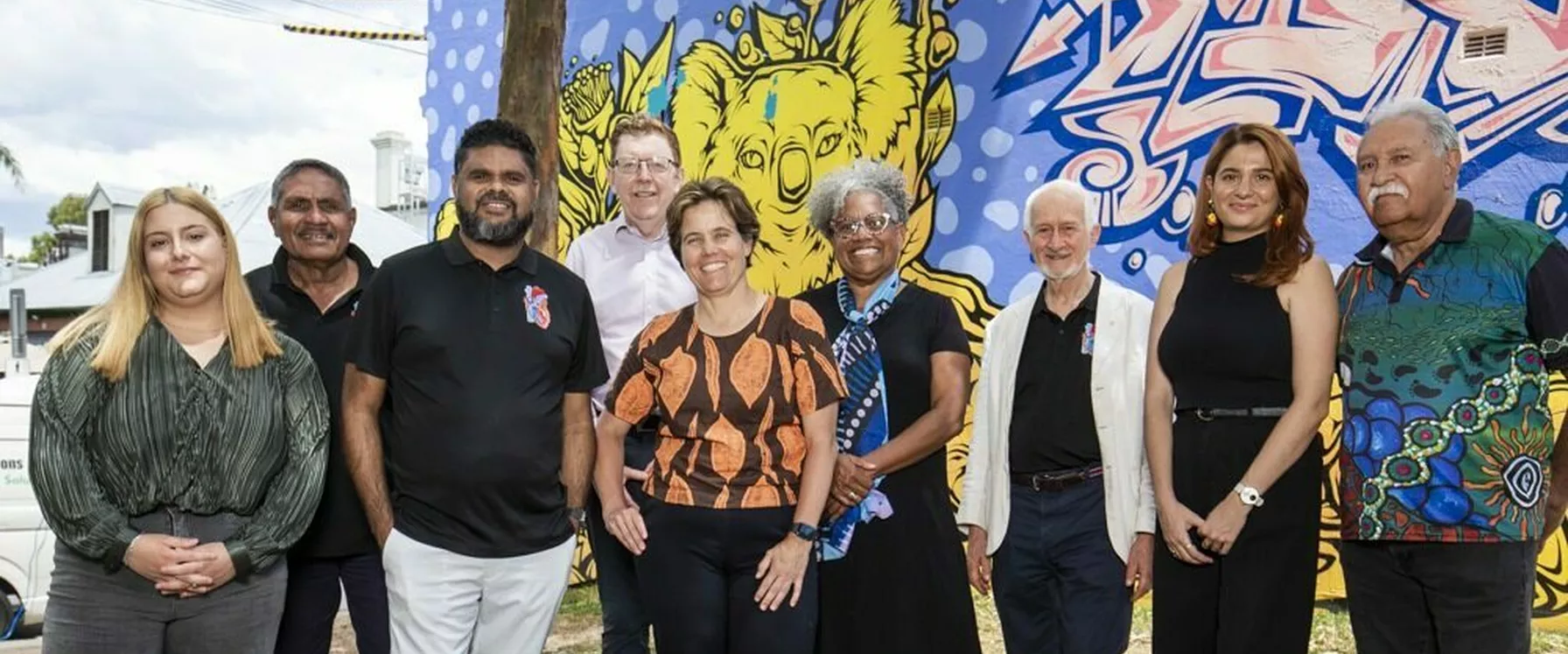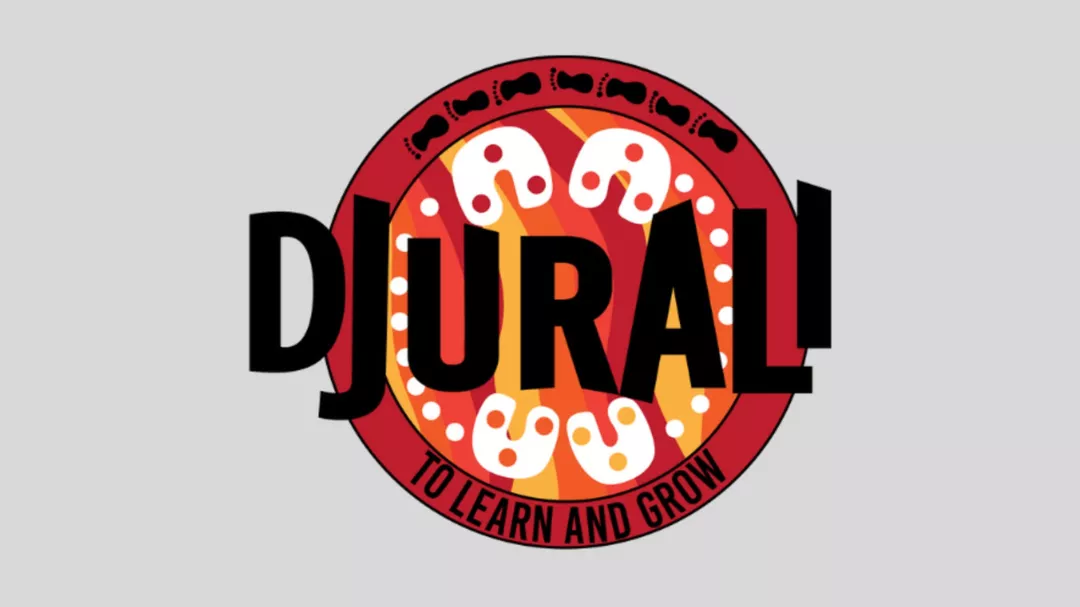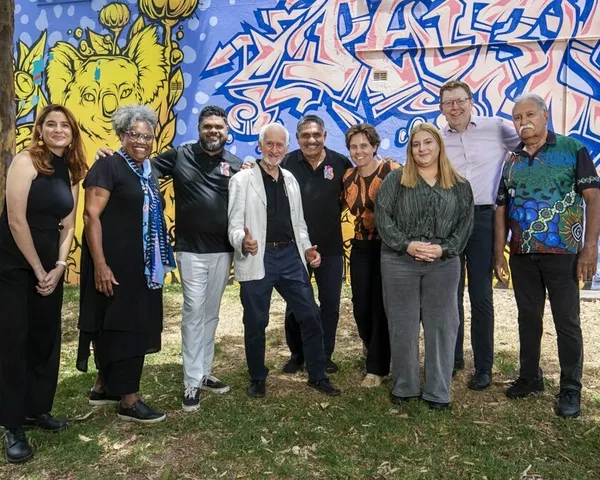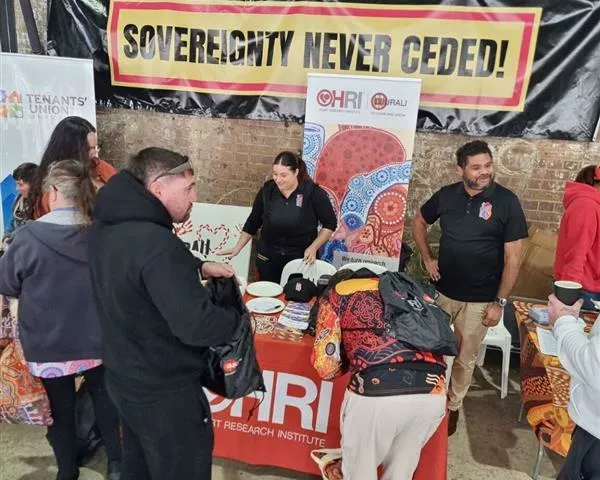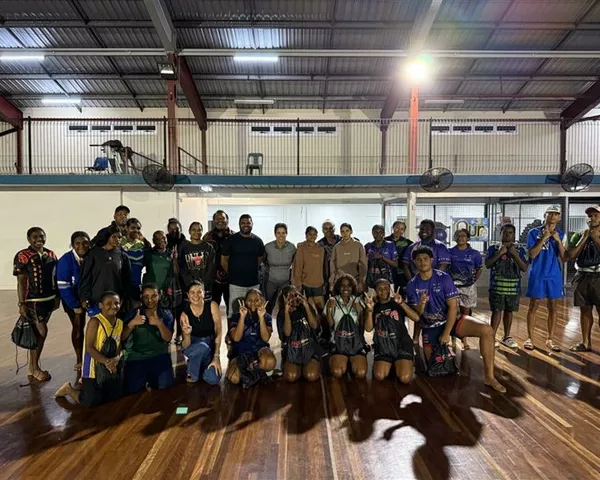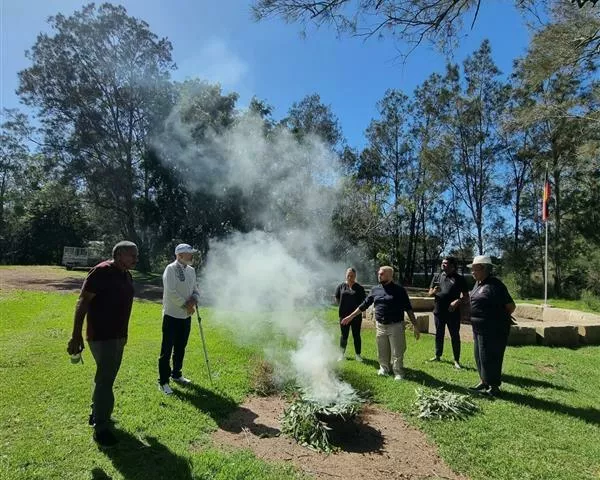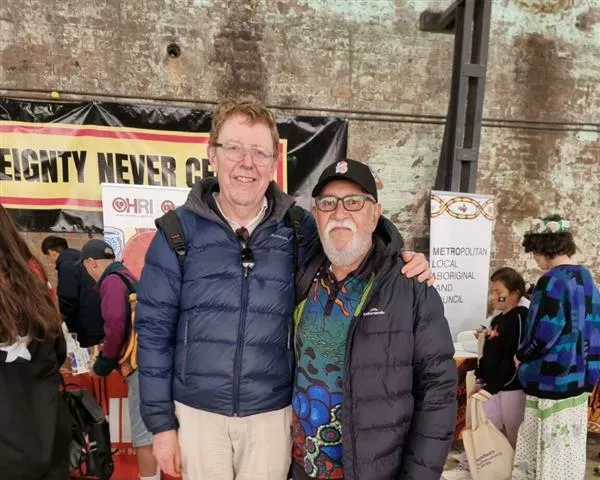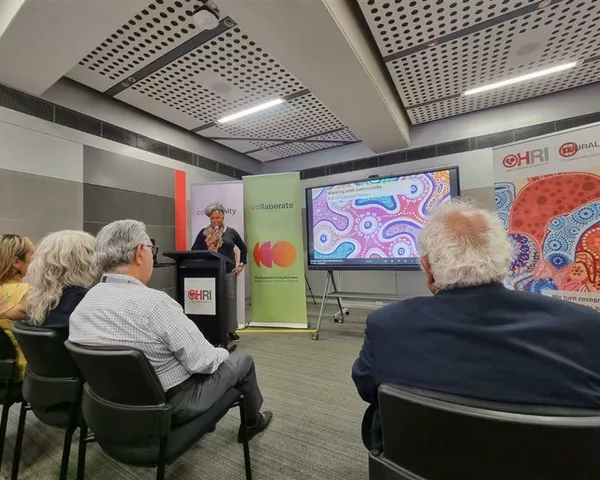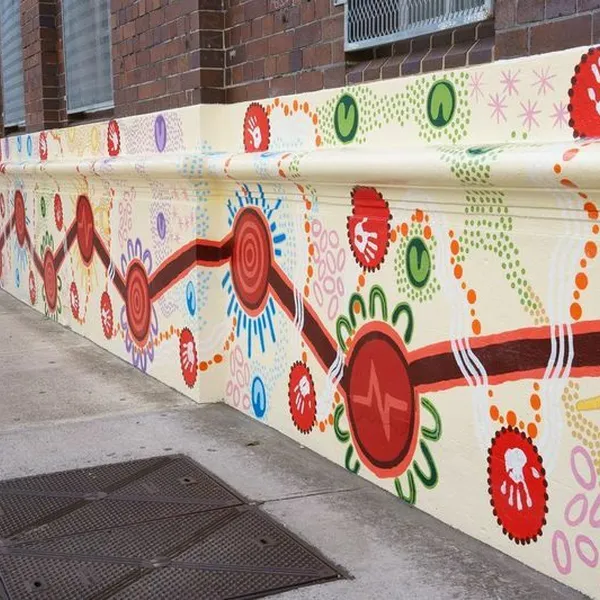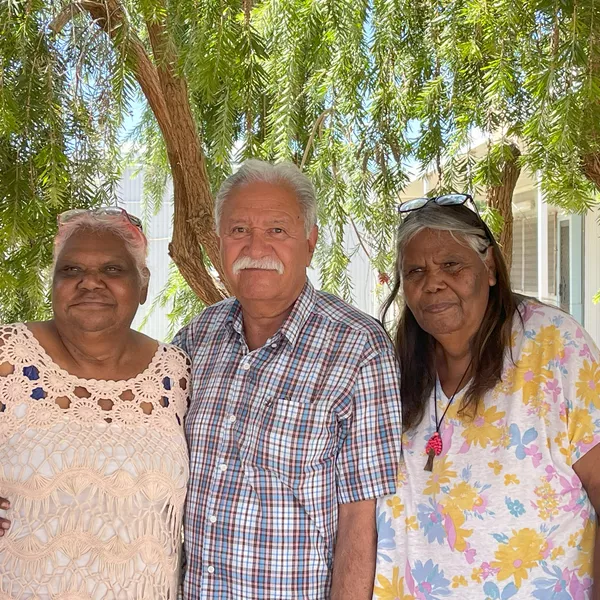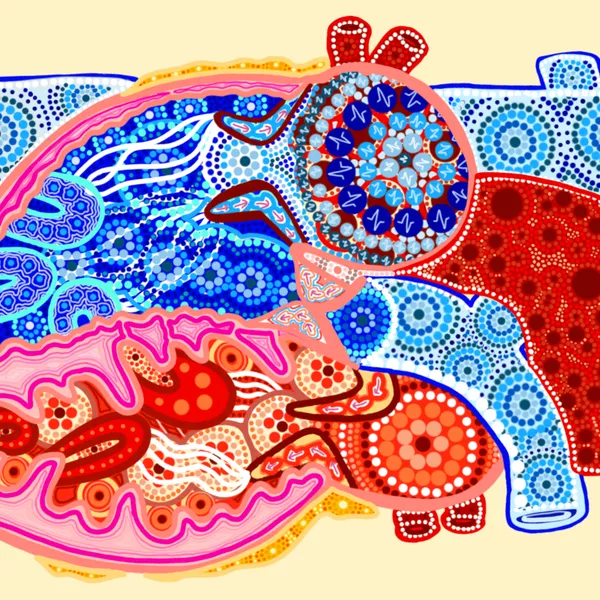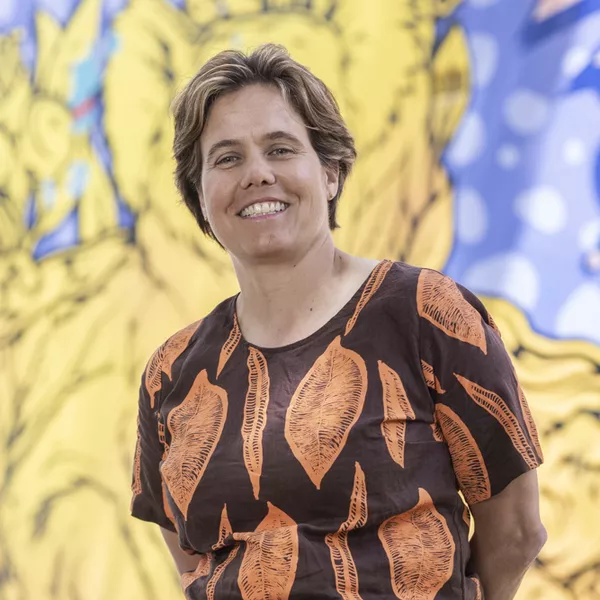
Djurali, to grow and learn, is our practice of developing deep relationships and collaborations with Aboriginal and Torres Strait Islander communities, community health organisations, health professionals, researchers and educators.
Djurali Centre is a culturally responsive and supportive environment that delivers positive and practical solutions to issues that impact on local Aboriginal and Torres Strait Islander communities.
We collaborate in the delivery of community led health strategy where Aboriginal and Torres Strait Islander representatives are leading health education, research and service delivery. Our collaborations are our strength, where diverse skills and expertise are brought together as we strive towards closing the health gap between Aboriginal and Torres Strait Islander Peoples and non-Indigenous Australians.
Our common agenda is to improve health services by sharing resources that enhance capacity and build local skills through mutually reinforcing activities that are genuine partnerships.
We are grounded in Aboriginal and Torres Strait Islander values and culture that allows the meeting and mixing of diverse knowledge systems to grow and learn together.
Our objectives
- To improve the health outcomes for Aboriginal and Torres Strait Islander communities
- To amplify Aboriginal and Torres Strait Islander leadership and governance (in research and education)
- To support community led research
- To contribute to sustainability and priorities of community organisations
- To build and sustain mutually beneficial relationships with communities, partnerships and stakeholders
- Lead research that strengthens community and influences policy and positive change
- To promote, model and communicate the values, process and work of the Djurali Centre
- Strength in identity through our communities and culture (our identity is strong in from our connection to communities and culture)
Our values
- Cultural leadership and safety: Aboriginal people lead the process right from the beginning to the end
- Sustainability: Activity is embedded and not one-off or short term. It is ongoing.
- Reciprocity: Benefits, resources and outcomes are shared with all stakeholders especially when giving back to the community
- Alignment with existing initiatives and plans: Our work is aligned to national plans, policies and strategies and organisations, especially those embedding community- designed and led research priorities; working to close the gap between Aboriginal people and broader society, complementing the research work of others
- Holistic and inclusive: We align activity with existing work or a broader and sustained work program. We practice reflective, deep listening and include others that share our values and purpose
- Accountability: To each other, our partners, and the communities in which we work.
Selected publications
Cross C, Christie V, Holt L, Rambaldini B, Ward K, Skinner J, Henson C, McCowen D, Benrimoj S, Dineen-Griffin S, Gwynne K. (2025) Aboriginal and Torres Strait Islander peoples' perspectives on community pharmacists prescribing: a co-designed study protocol. Australian Health Review 49, no pagination specified.
Masters A, Wilkey K, Bryant E, et al. Prevalence of eating disorders and disordered eating in First Nations Peoples in high-income, colonial settler countries: a scoping review. BMJ Public Health 2025;3:e002223. doi:10.1136/ bmjph-2024-002223
J. Y. Chau, J. Hunter, J. D. Gwynn, et al., “A Scoping Review of Health-Related Citizen Science Projects Involving Indigenous Peoples in Australia and Internationally,” Health Promotion Journal of Australia 36, no. 4 (2025): e70086
Parter, C., Brown, S., Rix, E. F., & Wilson, S. (2025). An Indigenous data analysis framework of practice and Carmen’s Theory. AlterNative: An International Journal of Indigenous Peoples, 0(0).
Fono, M.A., Chapman, F., Christie, V., Parter, C., Knight, J., Sherriff, S., Rambaldini, U.B., Moggridge, B. and Gwynne, K. (2025), Aboriginal and Torres Strait Islander Perspectives in Drinking Water Policy: A Realist Review. Aust J Soc Issues, 60: 602-620.
Gwynn, J., J. Gilroy, S. Peter, et al. 2025. “ ‘Giving Back to Our Community’: The Retention of the Aboriginal and Torres Strait Islander Disability Workforce in New South Wales, Australia.” Australian Journal of Social Issues 1–12.
Thompson, Anna et al. Aboriginal community researchers: A short report on the research training program and research experience with the Virtual Rural Generalist Service evaluation. First Nations Health and Wellbeing - The Lowitja Journal, Volume 4, 100102
Nash K, Gwynne K, Dimitropoulos Y, et al. INdigenous Systems and Policies Improved and Reimagined for Ear and hearing care (INSPIRE): a multi-method study protocol. BMJ Open 2024;14:e079850. doi:10.1136/bmjopen-2023-079850
Henson C, Rambaldini B, Freedman B, et al. Wearables for early detection of atrial fibrillation and timely referral for Indigenous people ≥55 years: mixed-methods protocol. BMJ Open 2024;14:e077820. doi:10.1136/bmjopen-2023-077820
Hurst, L.; Kirwan, M.; Christie, V.; Cross, C.; Baylis, S.; White, L.; Gwynne, K. The Effect of Community-Based Exercise on Health Outcomes for Indigenous Peoples with Type 2 Diabetes: A Systematic Review. Int. J. Environ. Res. Public Health 2024, 21, 290.
Rebecca Raeside; Allyson Todd; Kyra Sim; Melissa Kang; Seema Mihrshahi; Lauren A Gardner; Katrina E Champion; John Skinner; Liliana Laranjo; Katharine Steinbeck; Julie Redfern; Stephanie R Partridge. Accelerating implementation of adolescent digital health prevention programs: analysis of insights from Australian stakeholders. Front. Public Health, 03 May 2024 Sec. Digital Public Health Volume 12 - 2024
Parter (Murrana, Juru and Darumbal Clans of Birra Gubba Nation with South Sea Islander heritage from Tanna Island of the Republic of Vanuatu), C., Murray (Wiradyuri Wonnarua), D., Mokak (Djugun; member of Yawuru people), R., Briscoe (Kuku Yalanji), K., Weston (Meriam), R. and Mohamed (Nurungga Kaurna), J. (2024), Implementing the cultural determinants of health: our knowledges and cultures in a health system that is not free of racism. Med J Aust, 221: 5-7.
Henson, Freedman, Rambaldini, Carlson, Parter, Nalliah, Chapman, Orchard, Skinner, Gwynn, Ward, Macniven, Ramsden, Saji, Nala 'Ḵixsisa̱'las Speier, Nahdi, Christie, Huang, Gwynne. Wearables are viable digital health tools for older Indigenous adults living remotely in Australia (Research) Digital Health. 2024 Aug 28:10:20552076241277039. doi: 10.1177/20552076241277039.eCollection 2024 Jan-Dec.
Christie, V.; Riley, L.; Green, D.; Amin, J.; Skinner, J.; Pyke, C.; Gwynne, K. Improving Breast Cancer Outcomes for Indigenous Women in Australia. Cancers 2024, 16(9), 1736;
Parter C, Rambaldini B, Wilson S, Gwynn J, Skinner J, and Calma T. Heal country, Heal our nation: Talking up racism Australian and New Zealand Journal of Public Health.
Henson C, Chapman F, Shepherd G, et al. Mature aged Aboriginal and Torres Strait Islander adults are using digital health technologies (original research). DIGITAL HEALTH. 2022;8. doi:10.1177/20552076221145846
Henson C, Chapman F, Shepherd G,Carlson B, Rambaldini B, Gwynne K How Older Indigenous Women Living in High-Income Countries Use Digital Health Technology: Systematic Review J Med Internet Res 2023;25:e41984
Lumby, N. Carlson, B., O’Sullivan, S., Kennedy, T., & Day, M. (2023, accepted for publication). ‘The Voice of Country: Our obligation and responsibility to listen’ In (Eds.). The Routledge Handbook of Australian Indigenous Peoples and Futures. Routledge.
Nash, K., Macniven, R., Clague, L., Coates, H., Fitzpatrick, M., Gunasekera, H., Gwynne, K., Halvorsen, L., Harkus, S., Holt, L. and Lumby, N., 2023. Ear and hearing care programs for First Nations children: a scoping review. BMC Health Services Research, 23(1), p.380.
Christie V, Green D, Skinner J et al. “Everyone needs a Deb”: what Australian Indigenous women say about breast cancer screening and treatment services, BMC Health Serv Res 23, 672 (2023).
Christie V, Riley L, Green D, Snook K, Henningham M, Rambaldini B, Amin J, Pyke C, Varlow M, Goss S, Skinner J, O’Shea R, McCowen D, Gwynne K. Does breast cancer policy in Australia meet the needs of Aboriginal and Torres Strait Islander women? A review. Int J Equity Health 22, 129 (2023).
Gwynne K, Jiang S, Venema R, Christie V, Boughtwood T, Ritha M, Skinne J, Ali N, Calma T. Genomics and inclusion of Indigenous peoples in high income countries. Human Genetics Journal (2023);
Meincke, J.; Gwynne, K.; Chiu, C.L.; Bhatti, A.J.; Christie, V.; Janszen, J.; Nazareth, L.; Needham, I.; Kirwan, M. Can an Authentic Assessment Task Improve the Health Behaviours of Undergraduate Students? Educ. Sci. 2023, 13, 727.
Meharg, D. P., Naanyu, V., Rambaldini, B., Clarke, M. J., Lacey, C., Jebasingh, F., Lopez-Jaramillo, P., Gould, G. S., Aceves, B., Alison, J. A., Chaiton, M., Chen, J., Gonzalez-Salazar, F., Goodyear-Smith, F., Gwynne, K. G., Lee, K. S., MacKay, D., Maple-Brown, L., Mishara, B. L., ... Anderson, M. (2023). The Global Alliance for Chronic Diseases researchers’ statement on non-communicable disease research with Indigenous peoples. The Lancet Global Health, 11(3), e324-e326.
Meharg, D.P., Dennis, S.M., McNab, J. et al. A mixed methods study of Aboriginal health workers’ and exercise physiologists’ experiences of co-designing chronic lung disease ‘yarning’ education resources. BMC Public Health 23, 612 (2023).
Ubrihien A, Lewis DA, Rambaldini B, Kirwan M, Gwynne K. Clinicians' perspectives on why young Aboriginal people are not testing for sexually transmissible infections in Western Sydney. Int J STD AIDS. 2023 Jun 5:9564624231179766. doi: 10.1177/09564624231179766. Epub ahead of print. PMID: 37277965
Cheek C, Hayba N, Richardson L, et al Experience-based codesign approach to improve care in Australian emergency departments for complex consumer cohorts: the My ED project protocol, Stages 1.1–1.3BMJ Open 2023;13:e072908. doi: 10.1136/bmjopen-2023-072908
Do, Lisa Hai My; Dimitropoulos, Yvonne; Wallace, Janet; Skinner, John; Sohn, Woosung. Oral health services provided for Aboriginal and Torres Strait Islander people: a scoping review protocol. Australian & New Zealand Journal of Dental & Oral Health Therapy. 2023, Vol. 11 Issue 1, p11-14. 4p.
Harkus, S., Marnane, V., O'Keeffe, I., Kung, C., Ward, M., Orr, N., Skinner, J., Kong, K., Fonua, L., Kennedy, M. and Belfrage, M. (2023), Routine ear health and hearing checks for Aboriginal and Torres Strait Islander children aged under 6 years attending primary care: a national consensus statement. Med J Aust.
Zhao, Y, Raymond, K, Chondur, R, Sharp, W, Gadd, E, Bailie, R, et al. Costs and benefits of community water fluoridation in remote Aboriginal communities of the Northern Territory. Aust J Rural Health. 2023; 00: 1-10
Henson C, Chapman F, Shepherd G,Carlson B, Rambaldini B, Gwynne K Amplifying Older Aboriginal and Torres Strait Islander Women’s Perspectives to Promote Digital Health Equity: Co-Designed Qualitative Study J Med Internet Res 2023;25:e50584
Christie V, Riley L, Gwynne K, Pyke C. Breast surgery in first nations populations; Chapter 22. Ensuring high quality breast surgery is accessible. Oxford Textbook of Breast Cancer. Oxford University Press (book section accepted May 2023, in press)
David P Meharg, Sarah M Dennis, Justin Mcnab, Kylie G Gwynne, Christine R Jenkins, Graeme Maguire, Stephen Jan, Tim Shaw, Zoe McKeough, Boe Rambaldini, Vanessa Lee, Debbie Mccowen, Jamie Newman, Scott Monaghan, Hayley Longbottom, Sandra J Eades, Jennifer A Alison. Co-designing chronic lung disease education resources with Aboriginal Health Workers (AHWs) and exercise physiologists (EPs) European Respiratory Journal Sep European Respiratory Journal 2023 62 (Supp 67) DOI: 10.1183/13993003.congress-2023.PA965
Parter C, Gwynn J, Wilson S, Skinner J, Rix E (Liz), Hartz D. Putting Indigenous cultures and Indigenous knowledges front and centre to clinical practice: Katherine Hospital case study. International Journal of Environmental Research and Public Health.
The team

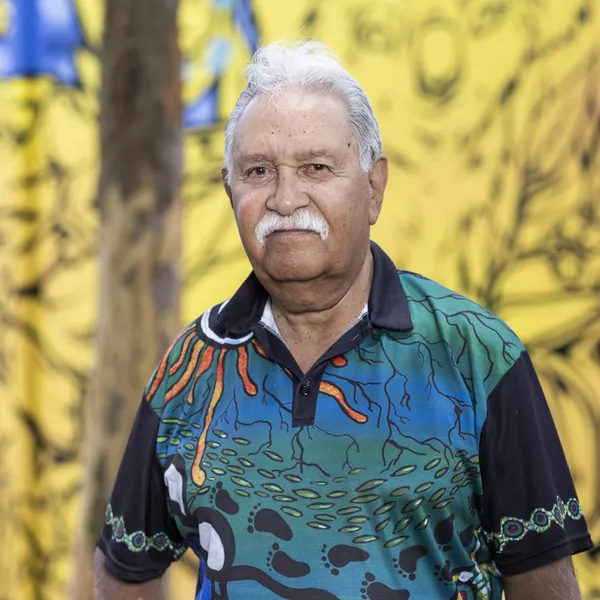
Associate Professor, Uncle Boe Rambaldini
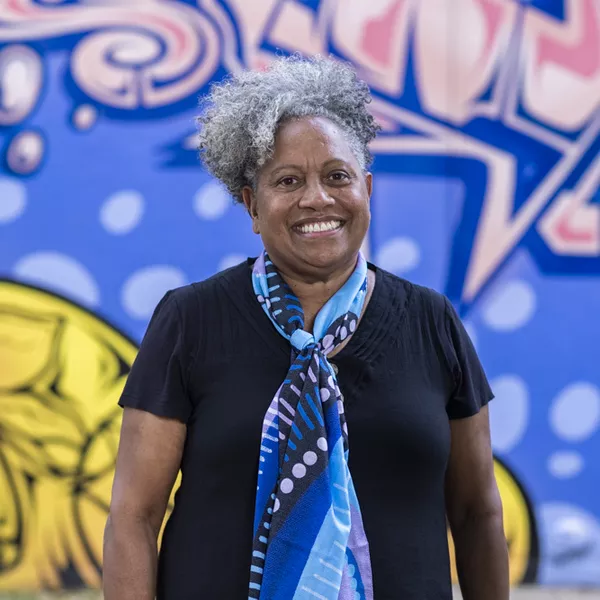
Associate Professor, Aunty Carmen Parter
